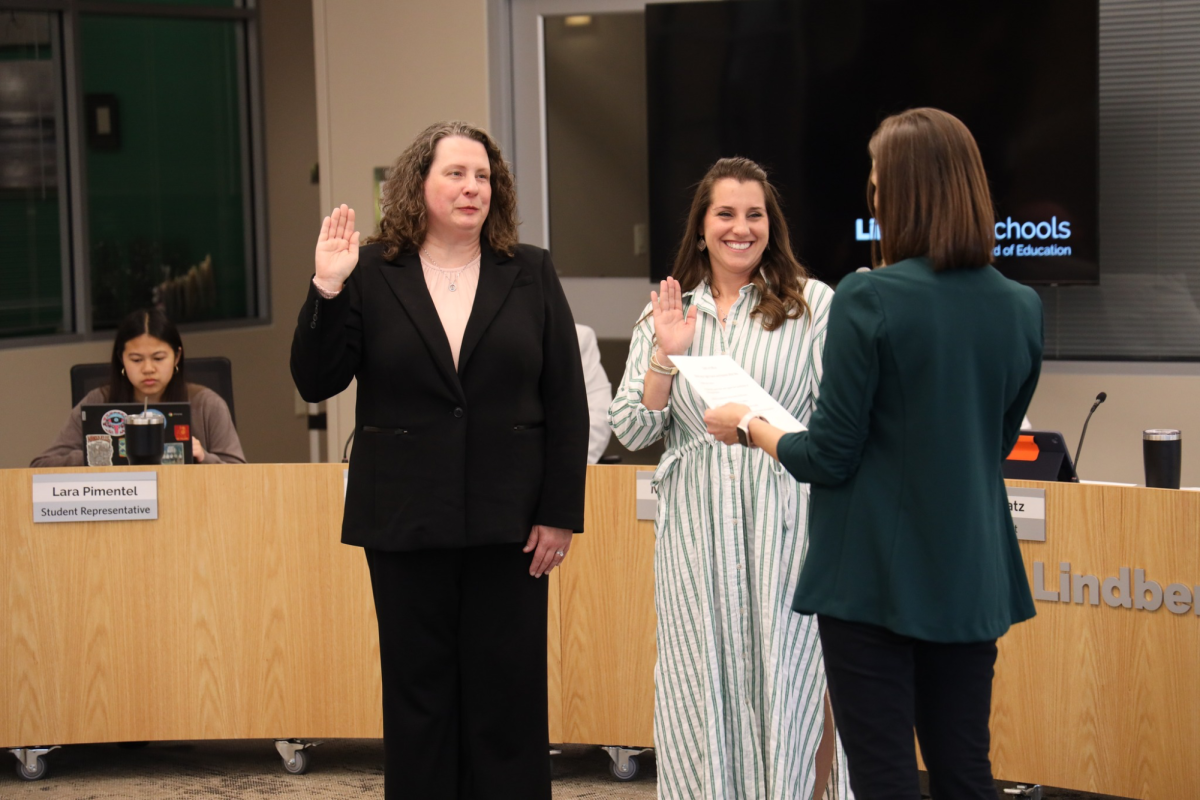A Crestwood alderman recently chafed at a resident’s implication that the city issued bond-like certificates of participation instead of general obligation bonds to fund a new police building in an effort to circumvent city voters.
During a meeting of the Board of Aldermen last week, a representative of the city’s bond counsel outlined the consequences the city would face if it does not proceed with construction of a new police building.
In response to a request from City Administrator Don Greer, Mark Boatman of Armstrong Teasdale, the city’s bond counsel, wrote a memorandum answering four questions relating to the $9.83 million in certificates of participation that were issued to fund a new police building and improvements to City Hall. During the April 13 meeting, Boatman also responded to questions from aldermen and residents.
At one point, resident Frank Spinner asked Boatman why certificates of participation were issued instead of general obligation bonds, questioning if that was an effort to avoid having voters approve a bond issue.
However, Ward 4 Alderman Tom Fagan chafed at that implication, noting that voters had approved the extension of a half-cent, capital-improvements sales tax before the certificates of participation were issued.
Given that, Fagan contended Spinner’s statement was “wholly inaccurate” because voters had extended the sales tax.
Crestwood voters in August 2002 approved Proposition S, the extension of a half-cent sales tax to fund construction of the new police building, provide revenue for repairs at City Hall and allow the continuation of the city’s street repair and replacement program.
The half-cent, capital-improvements sales tax had been scheduled to end in 2008, but voter approval of Proposition S extended the sales tax until 2023.
Aldermen had voted in November 2002 to issue the $9.83 million in certificates of participation after learning a vote taken two weeks earlier essentially had committed them to issuing the bond-like certificates.
At least one alderman, Don Maddox of Ward 3, contended that he had been “flat-out misled … if not lied to” regarding the ramifications of the earlier vote.
The board voted unanimously Oct. 22, 2002, to “preliminarily select” Edwards Jones and BA Securities as the underwriter for the sale of certificates of participation that will be used to fund the construction of a new police station and renovations to City Hall.
Aldermen who wanted to explore alternative measures of financing the new police station and City Hall work learned Nov. 12, 2002, that the board essentially had been committed to approving the sale of the certificates because Edward Jones had conducted a “presale” with orders for about 99 percent of the certificates.
During last week’s meeting, Spinner asked Boatman, “Is it cheaper to borrow money using the COPs method or general obligation bonds?”
Boatman said, “General obligation, but you have to pledge your full faith and credit.”
Spinner said, “What’s the difference because you’re going to pay the bonds whether you pledge full faith and credit or whatever, I’ve heard you say that. Is it because you’re trying to avoid the voters approving the bond issue? Isn’t that a reason?”
Boatman said, “That could be a reason.”
Spinner said, “Well, it sounds, it looks to me as a neophyte like you were more concerned — you weren’t concerned about the borrowing costs, you were more concerned about the voters not approving it.”
Boatman said, “… I believe there are circumstances where people use these methods of financing to avoid having to go to the people for a vote.”
Spinner said, “I agree.”
Boatman said, “However, as we’re seeing here right now, we’re always answerable to the people and so I don’t believe board members, conscientious board members, ever do anything that they think that the people will be absolutely against.”
Spinner said, “I’m sorry, I’m a suspicious person.”
Boatman said, “That’s fine. That’s good. That’s what makes our government healthy. The thing is that the difference in rates between general obligation bonds, particularly in today’s interest rate climate, and these type of revenue bond financings is very slim …”
Spinner interjected, “I don’t really care how slim it is, it’s more expensive to use COPs.”
Boatman said, “See I was about to say, though, that actually since elections also have costs, it may not be more expensive in the end.”
Spinner again interjected, “Only if you call a special election.”
Boatman said, “Well, you still have expenses associated with the election. You have to hire lawyers …”
Spinner interjected, “I just hope that — because it appears to me that this is the method Crestwood has always used. Have they ever issued general obligation bonds? I don’t think so. Now I don’t understand how you can borrow money over all these years and never use a general obligation bond. I do not understand that because that’s the cheapest way to borrow money …”
Acting Mayor Richard Breeding noted that aldermen relied upon the recommendation of the city’s financial adviser, Joy Howard of WM Financial Strategies, who works on an hourly basis, utilizing a not-to-exceed contract amount.
Spinner said, “Did she advise you to pay a higher interest rate?”
Breeding said, “No, she advised us to — that was the best method of financing. I mean that’s the advice we were given and I can’t respond any other way …”
Fagan later said, “I’ve got a question. Did the voters vote to extend the sales tax, extend the period of time, Mr. Greer?”
Greer said, “Yes they did.”
Fagan said, “And when was that?”
Greer replied that voters approved the sales-tax extension in August 2002.
Fagan said, “Prior to the city agreeing to go forward with this proposal, is that correct, on the police station. So I think Mr. Spinner, the statement that we tried to circumvent the voters somehow is wholly inaccurate unless I’m missing some point here because the citizens had already voted to extend the sales tax, the capital-improvement sales tax, for an additional time period.”
Spinner interjected, “That’s not the same. There’s no — there’s a complete difference between approving a sales-tax increase and selling a $9 million bond issue. Now, again, I’m not accusing anybody, I’m just saying from my standpoint, it looks suspicious.”
Fagan said, “My recollection was that everybody knew what they were voting on when we put this to the voters, that it was going to be for the intended use of a police station.”
Breeding noted that he served on the police board at the time.
“The Police Board was heavily pushing that for this reason,” he said. “But I’m not so sure because we can’t advertise why we’re passing this, there was no huge campaign because we can’t spend city money to advertise why we’re doing this. It was more of a word of mouth. So I do see both sides of that.”






















